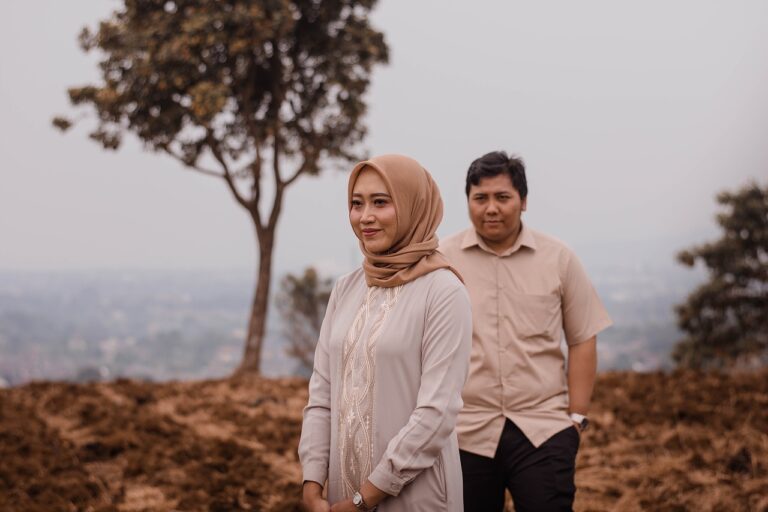Navigating The Modern Dating World: Tips And Tricks For Success
In the fast-paced and ever-changing world of modern dating, finding love can sometimes feel like a daunting task. From online dating platforms to casual hookups, the options can be overwhelming. But fear not, because this article is here to guide you through the maze of modern romance. Packed with invaluable tips and tricks, we’ll help you navigate the dating scene with confidence and increase your chances of finding that special someone. Whether you’re a seasoned dater or just starting out, get ready to take your love life to the next level.
Understanding Modern Dating
Defining the modern dating world
In today’s fast-paced and interconnected world, the concept of dating has undergone significant changes. Modern dating can be defined as a process of meeting and getting to know potential partners through various means, such as online dating platforms, social events, or introductions by friends.
Unlike traditional dating, where individuals often relied on face-to-face interactions and chance encounters, modern dating offers a wide range of options and opportunities. It allows you to connect with people you may never have met otherwise, expanding the pool of potential partners.
Changes in dating norms and expectations
Dating norms and expectations have evolved alongside societal changes.

Moreover, the timeline of dating has also shifted. People are now taking longer to commit and are exploring multiple dating options before settling into a serious relationship. This change highlights the importance of clear communication and mutual understanding of intentions to avoid misunderstandings and heartache.
The influence of technology on dating
Technology has undeniably transformed the way we approach dating. Online dating platforms have gained immense popularity, providing a convenient and efficient way to meet potential partners. With just a few clicks, you can create a dating profile and start connecting with people who share similar interests and values.
Additionally, technology has also introduced new modes of communication, such as texting and video calls, making it easier to stay connected and build a rapport with someone even before meeting face-to-face. However, it is essential to strike a balance between virtual and in-person interactions to ensure the development of a genuine connection.
Preparing Yourself for Dating
Self-reflection and setting intentions
Before embarking on the dating journey, it is crucial to engage in self-reflection and identify your desires, values, and goals. Take the time to understand what you truly want from a relationship and what you can bring to the table. This self-awareness will not only help you set clear intentions but also attract potential partners who align with your values.
Building self-confidence
Confidence is key when it comes to dating. Work on building your self-confidence by embracing your unique qualities and strengths. Focus on self-care, engage in activities that make you feel good about yourself, and surround yourself with supportive and uplifting people. Remember, self-confidence is attractive, and it sets the foundation for a healthy and fulfilling relationship.
Identifying personal values and priorities
Understanding your personal values and priorities is essential for successful dating. Take some time to assess what you value most in a partner and a relationship. This knowledge will guide you in making decisions and ensure that you invest your time and energy in compatible matches. Aligning your values and priorities with those of your potential partner is crucial for the long-term success of a relationship.
Creating a Strong Online Dating Profile
Choosing the right dating platform
With numerous online dating platforms available, it is important to choose one that aligns with your dating goals and preferences. Research different platforms, read reviews, and consider factors such as user demographics and features. Selecting the right platform increases the likelihood of meeting compatible matches who share your interests and values.
Crafting an attention-grabbing bio
Your online dating profile bio is your chance to make a memorable first impression. Be authentic and showcase your personality while highlighting your interests and values. Use positive language and avoid generic clichés. Show your sense of humor and include specific details that spark curiosity and conversation.
Using appealing and genuine profile pictures
Choose profile pictures that accurately represent you while showcasing your best qualities. Use high-quality photos that capture your personality and interests. Avoid heavily filtered or misleading pictures, as they can create unrealistic expectations. Remember, honesty and authenticity are vital when building a genuine connection.
Highlighting your interests and hobbies
Including your interests and hobbies in your online dating profile can help you attract like-minded individuals. Think about the activities you enjoy and the values they reflect. Whether it’s hiking, cooking, or attending music festivals, sharing your passions will spark conversations and create common ground with potential partners.
Effective Communication Skills
Active listening and understanding
Effective communication is the cornerstone of any successful relationship. Practice active listening by giving your full attention to your date and demonstrating genuine interest in what they are saying. Use non-verbal cues, such as nodding and maintaining eye contact, to show that you are actively engaged in the conversation. Remember, communication is a two-way street, and listening is just as important as speaking.
Expressing yourself honestly and openly
Open and honest communication is vital for building trust and intimacy. Express your thoughts, feelings, and desires with clarity and sincerity. Be authentic and avoid playing games or pretending to be someone you are not. This transparency will not only foster a deeper connection but also ensure that both you and your partner have a clear understanding of each other’s expectations.
Navigating conversations about expectations
Discussing expectations early on can help avoid potential misunderstandings. Be open to having conversations about what you are looking for in a relationship, your goals, and your boundaries. It is important to listen to your partner’s expectations and communicate your own to ensure alignment. Remember, honest communication about expectations is crucial for the success of any relationship.
Managing conflicts and disagreements
Conflicts and disagreements are a natural part of any relationship. When they arise, approach them with empathy, patience, and a willingness to understand the other person’s perspective. Use “I” statements to express your feelings and avoid blaming or criticizing your partner. Focus on finding mutually beneficial solutions and strive for compromise. Effective conflict resolution skills are essential for maintaining a strong and healthy relationship.
Navigating the First Dates
Choosing the right location and activity
When planning a first date, consider a location and activity that allows for easy conversation and a relaxed atmosphere. Opt for a coffee shop, park, or museum where you can get to know each other without distractions. Choose activities that you both enjoy and that reflect your shared interests. A conducive environment will help create a positive and memorable experience.
Dealing with nerves and anxiety
First dates can be nerve-wracking, but remember that your date likely feels the same way. Take deep breaths, practice self-compassion, and remind yourself that you are meeting someone new to potentially form a connection. Engage in calming activities beforehand, such as meditation or exercise, to reduce anxiety. Embrace the excitement of getting to know someone new and approach the date with an open mind.
Engaging in interesting conversation topics
Engaging in interesting and meaningful conversations is key to building a connection on a first date. Ask open-ended questions that encourage your date to share their thoughts and experiences. Show genuine curiosity and actively listen to their responses. Topics such as travel, hobbies, and future aspirations can spark engaging discussions and help you understand each other better.
Reading verbal and non-verbal cues
Being able to read verbal and non-verbal cues is crucial for gauging your date’s interest and comfort level. Pay attention to their body language, tone of voice, and facial expressions. Are they engaged in the conversation? Do they maintain eye contact? These cues can provide insights into how your date is feeling, allowing you to adjust your approach accordingly and ensure a positive experience for both of you.
Building Emotional Connection
Empathy and showing genuine interest
Building an emotional connection requires empathy and genuine interest in your partner’s life. Put yourself in their shoes and seek to understand their experiences, thoughts, and feelings. Show compassion and support, and validate their emotions. By creating a safe and non-judgmental space, you can foster a deeper emotional connection and build trust.
Sharing personal stories and vulnerabilities
Opening up and sharing personal stories and vulnerabilities is a crucial step in building an emotional connection. By sharing your own experiences, you allow your partner to see your authentic self and encourage them to open up as well. However, it is important to take it at a pace that feels comfortable for both parties, respecting each other’s boundaries and emotional readiness.
Demonstrating compassion and support
Being compassionate and supportive towards your partner is essential for nurturing emotional connection. Celebrate their accomplishments, offer encouragement, and provide a listening ear when they face challenges. Show up for them in both good times and bad, and let them know that you have their back. This support will strengthen your bond and create a foundation of trust and emotional intimacy.
Nurturing intimacy and trust
Intimacy and trust are built over time and require effort from both partners. Be patient and understanding as you navigate the complexities of emotional intimacy. Communicate openly about your needs and desires, and create a safe space for your partner to do the same. By consistently showing up with honesty, reliability, and understanding, you can nurture a deep emotional connection.
Dealing with Rejection and Disappointment
Maintaining a positive mindset
Rejection is an inevitable part of dating, but it’s important to maintain a positive mindset. Remember that rejection is not a reflection of your worth as a person, but rather an indication of compatibility. Embrace rejection as an opportunity for growth and learning. Stay positive, focus on self-improvement, and trust that the right person will come along when the time is right.
Learning from each dating experience
Every dating experience, whether successful or not, offers valuable lessons and insights.

Finding the silver lining in rejection
Rejection can be disheartening, but it often paves the way for new and better opportunities. Look for the silver lining in rejection, such as discovering what you truly value in a partner or realizing that a particular relationship would not have been fulfilling in the long run. Embrace rejection as a redirection towards a more compatible and fulfilling connection.
Coping strategies for handling disappointment
Dealing with disappointment is an integral part of the dating process. Develop healthy coping strategies to navigate these feelings constructively. Engage in self-care activities that bring you joy and provide emotional support from friends and loved ones. Allow yourself time to heal and process your emotions before jumping back into the dating scene. Remember, disappointment is temporary, and each setback brings you closer to finding the right person.
Establishing Boundaries and Consent
Understanding the importance of boundaries
Establishing and respecting boundaries is crucial in any relationship. Boundaries serve as guidelines for acceptable behavior, ensuring that both partners’ needs and limits are honored. Recognize that everyone has different boundaries, so communicate your own clearly and actively listen to your partner’s boundaries. By respecting and upholding boundaries, you create a safe and respectful environment for both individuals.
Communicating boundaries effectively
Communicating boundaries effectively is essential for mutual understanding and consent. Clearly express your boundaries to your partner, using assertive and respectful communication. Be specific about what is and isn’t acceptable to you, both emotionally and physically. Encourage open dialogue and actively listen to your partner’s boundaries as well. Remember, consent is an ongoing process and should always be voluntary and enthusiastic.
Recognizing and respecting the boundaries of others
Respect for others’ boundaries is paramount in building healthy relationships. Pay attention to verbal and non-verbal cues that indicate discomfort or a need for personal space. Avoid pressuring or coercing your partner into situations they are not comfortable with. Respect their autonomy and the boundaries they have set. By honoring their boundaries, you demonstrate care, respect, and a commitment to their well-being.
Consent and navigating physical intimacy
Consent is the cornerstone of any healthy and respectful sexual relationship. Always obtain clear consent from your partner before engaging in any sexual activity. Ensure that both parties are comfortable and enthusiastic, and be mindful of any indications of discomfort or hesitation. Remember that consent can be withdrawn at any time, and it is vital to continually communicate and check in with your partner.
Dating Etiquette in the Digital Age
Texting and calling etiquette
In the digital age, texting and calling play a significant role in dating communication. Practice good texting etiquette by responding in a timely manner and engaging in meaningful conversations. Avoid excessive texting or double-texting as it can be overwhelming. When it comes to phone calls, be mindful of your partner’s preference for communication and respect their boundaries.
Social media dos and don’ts
Social media has become an integral part of our lives, including dating. Be mindful of what you post on social media and how it may be perceived by your partner or potential partners. Keep personal information private and avoid oversharing. Likewise, respect your partner’s privacy and boundaries by refraining from sharing their personal information without their consent.
Managing online presence and privacy
Maintaining a healthy balance between your online presence and your personal life is key. Be selective about the information you share online and consider privacy settings that align with your comfort level. Regularly review and update your online profiles to ensure they accurately represent who you are. Remember that your online presence is often a first impression for potential partners, so present yourself authentically and thoughtfully.
Digital etiquette during and after dates
Digital etiquette extends beyond the realm of online dating. During dates, prioritize in-person interaction and limit phone use. Be present and engaged in the moment, focusing on getting to know your partner. After dates, follow up with a thoughtful message expressing gratitude and interest. Avoid ghosting or playing mind games, as this behavior is disrespectful and undermines trust.
Balancing Dating and Personal Life
Setting realistic expectations and priorities
Balancing dating and personal life requires setting realistic expectations and priorities. Understand that dating takes time, and it is important to manage your expectations regarding finding the right person. Prioritize self-care, personal growth, and maintaining a fulfilling life outside of dating. Remember that a healthy relationship complements your already fulfilling life, rather than being the sole focus.
Maintaining independence and personal interests
Maintaining independence and personal interests is essential for a balanced and healthy dating life. Continue pursuing activities and hobbies that bring you joy and fulfillment. Nurture friendships and social connections outside of romantic relationships.

Avoiding dating burnout
Dating can sometimes feel overwhelming, leading to dating burnout. Avoid burnout by practicing self-care and setting boundaries. Take breaks when needed and give yourself time to recharge. Remember that dating is a journey, and it’s okay to take a step back if you feel overwhelmed. Listen to your emotions and prioritize your well-being, as this ultimately contributes to better dating experiences.
Establishing communication boundaries
Establishing communication boundaries is vital for maintaining balance between dating and personal life. Clearly communicate your needs and preferences regarding frequency and availability of communication. Strive for a healthy balance between being responsive and maintaining personal time and space. Respect your partner’s communication boundaries as well, ensuring that both individuals feel comfortable and respected.
Navigating the modern dating world can be exciting and sometimes challenging. By understanding the changes in dating norms, preparing yourself emotionally, and developing effective communication skills, you can increase your chances of success in finding a meaningful relationship. Remember to prioritize self-care, maintain realistic expectations, and honor your own boundaries as you explore the diverse and ever-evolving landscape of modern dating.






